At this year’s BECI innovation lunch, Manuel Hellondorff, Head of Customer Success at Novable, talked about the role played by ChatGPT and AI in legal tech.
Technological advancements affect every industry, including how we work, socialise, and gather information. And the law sector is not an exception.
The era of paper files and in-person meetings is over. Legal technology has successfully modernised and transformed conventional legal practices, including:
These are merely a few illustrations. Legal software systems are fundamentally altering how lawyers practise law all over the globe, not just for the benefit of firms.
In this article, we explore the various kinds of legal software systems, possible future developments, and how your company can benefit from all of their advantages in terms of corporate innovation.
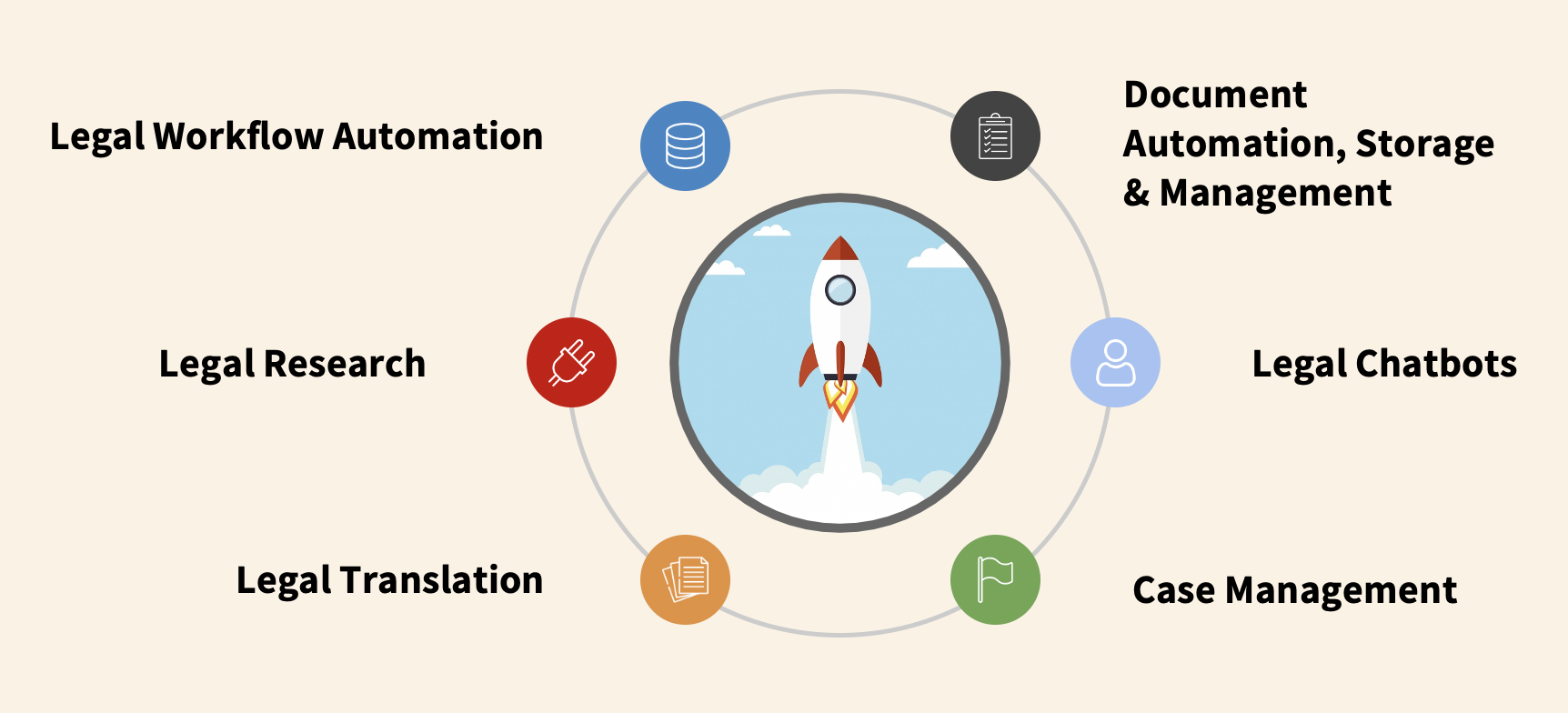
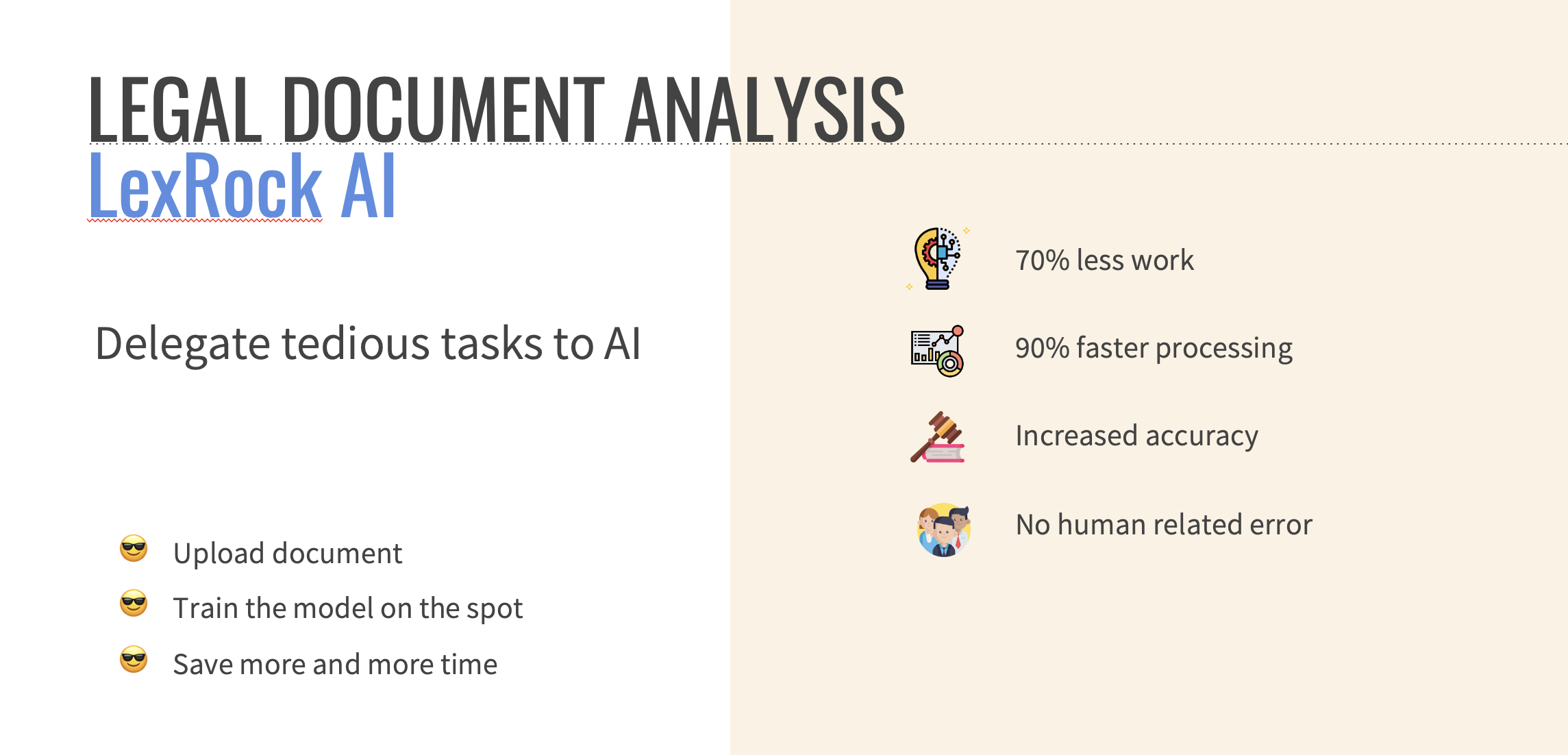
LexRock AI is a legal tech company that offers an AI-powered contract review and analysis platform for businesses. The platform uses natural language processing (NLP) and machine learning (ML) to analyze legal contracts and identify potential business risks and opportunities. It helps businesses streamline their contract review process, reduce manual errors, and improve the accuracy and efficiency of legal operations. Moreover, it is designed to be user-friendly, making it easy for non-legal professionals to understand and interpret legal language in contracts.
Overall, LexRock AI aims to help businesses make better-informed decisions about their contracts and legal agreements, ultimately saving them time and money in the process.
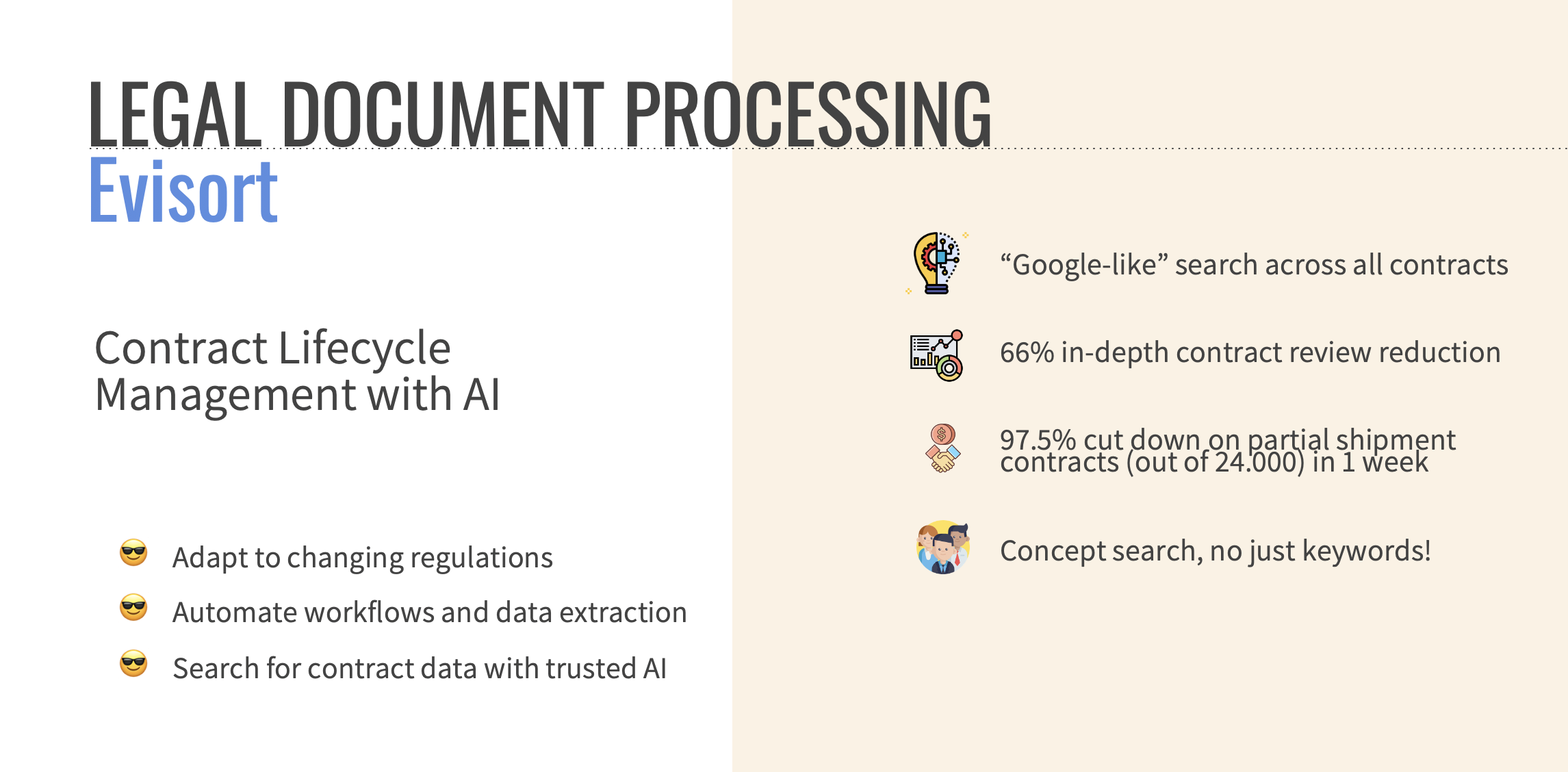
Evisort is a cloud-based contract management platform that uses AI to help businesses automate and streamline their contract management processes. The platform uses natural language processing (NLP) and machine learning (ML) to extract relevant data from contracts, such as key terms, clauses, and obligations, and categorise and organise them for easy access and analysis. It offers a range of features, including contract analysis, data extraction, document search, and reporting. It can also be integrated with other business applications, such as Salesforce, Microsoft Teams, and DocuSign, to provide a seamless user experience.
By automating contract management processes, Evisort aims to help businesses save time and reduce manual errors, while also improving compliance and risk management. The platform is designed to be user-friendly and customizable, making it suitable for businesses of all sizes and industries.
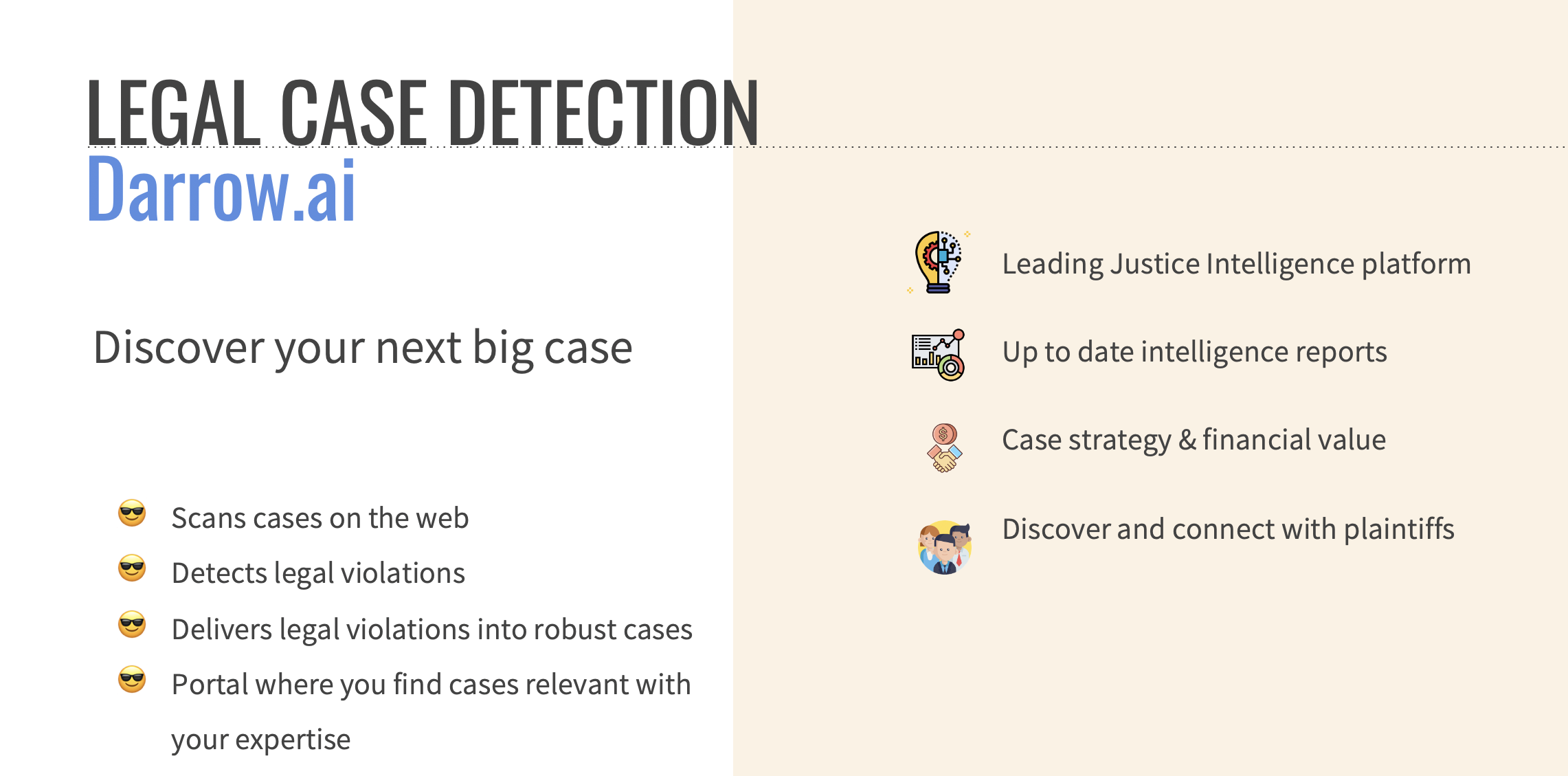
Darrow is a legal tech company that offers an AI-powered legal research platform for lawyers, law firms, and legal professionals. The platform uses natural language processing (NLP) and machine learning (ML) to analyse legal documents and extract key information, such as case law, statutes, and regulations. It provides users with access to a vast database of legal information, including court opinions, briefs, and pleadings. Additionally, it includes advanced search and analysis tools that allow users to find relevant legal information quickly and easily.
Therefore, the aim is to help legal professionals save time and increase productivity, while also improving the quality and accuracy of their work.
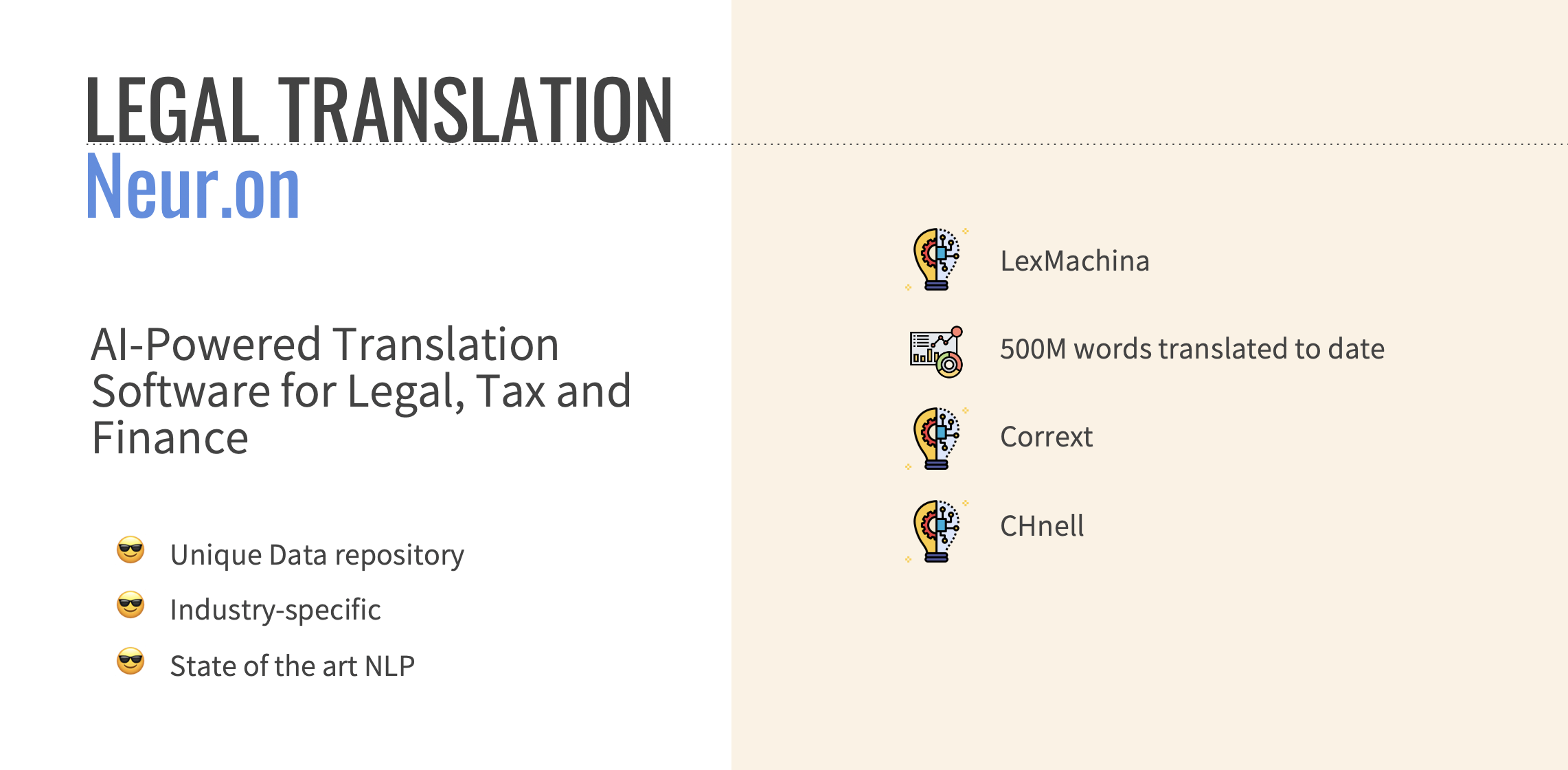
Neur.on is the first LegalTech startup to address the specific translation challenges faced by legal, tax, and banking professionals. Using cutting-edge Al-powered technology, they offer a solution for law and finance experts looking to take control of the translation process. All of this while guaranteeing the required level of quality and confidentiality.
Neur.on’s foundation stone is its unique legal, tax, and financial data repository – carefully collected and curated with its proprietary data gathering pipeline, “Datalambic”. Their software solutions are designed and adapted to specific needs and processes. They analyse and understand how users work and provide them with the right technology to be faster and more accurate, without ever disrupting their workflows.
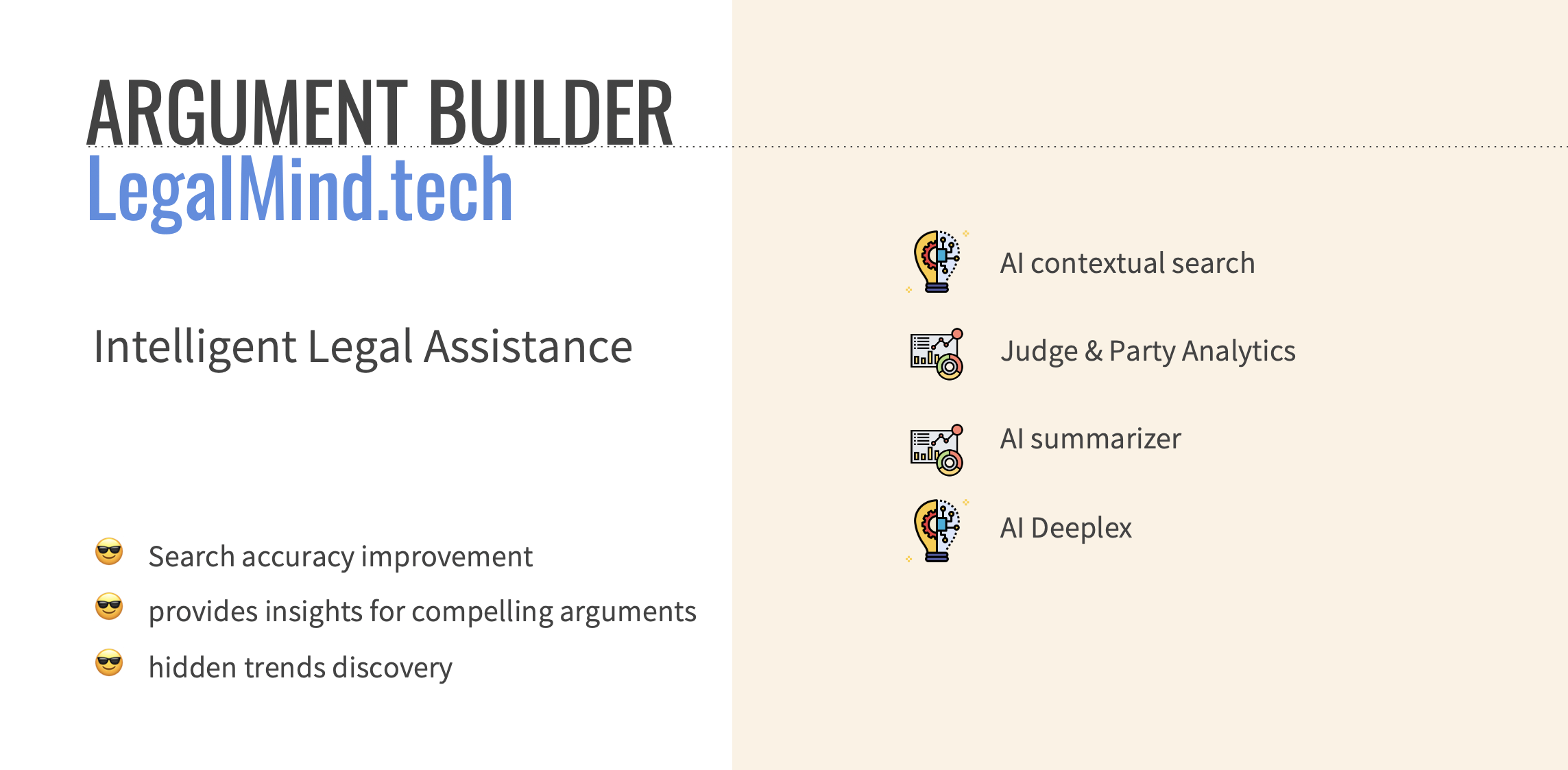
LegalMind is a legal tech company that offers an AI-powered contract analysis platform for legal professionals. The platform uses natural language processing (NLP) and machine learning (ML) to analyze legal documents and extract relevant information, such as key terms, clauses, and obligations. It provides users with a range of features, including contract review and analysis, due diligence support, and contract drafting assistance.
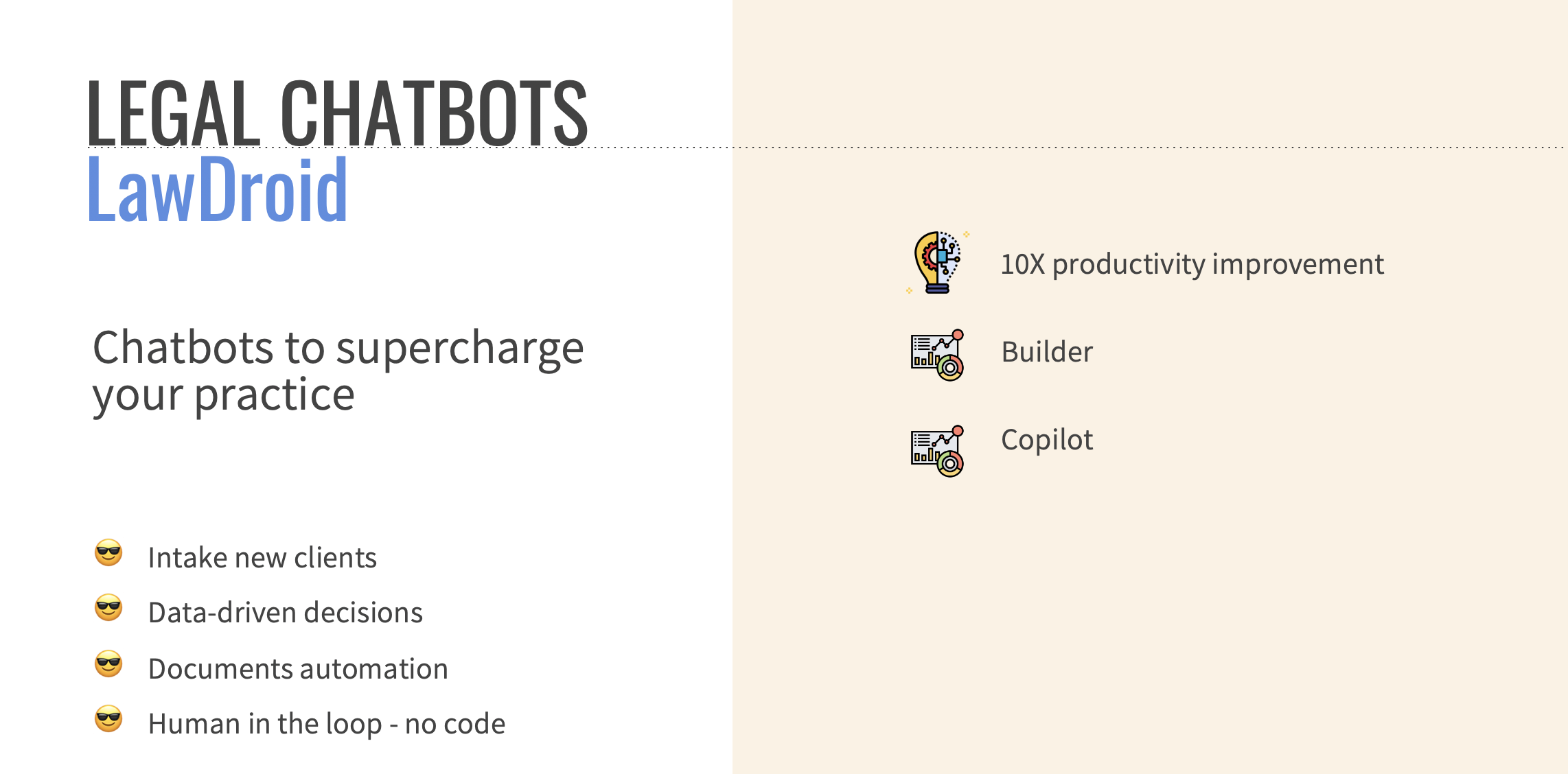
LawDroid is a legal tech company that offers a chatbot platform designed to help solo practitioners, small law firms, and legal departments streamline their client intake processes. The platform uses AI and natural language processing (NLP) to engage with clients through messaging apps, such as Facebook Messenger and Slack, and provide automated legal services. It provides users with a range of features, including customizable chatbots, document automation, appointment scheduling, and payment processing.
Therefore, by automating client intake processes and providing legal services through messaging apps, LawDroid aims to help legal professionals reach new clients and grow their businesses.
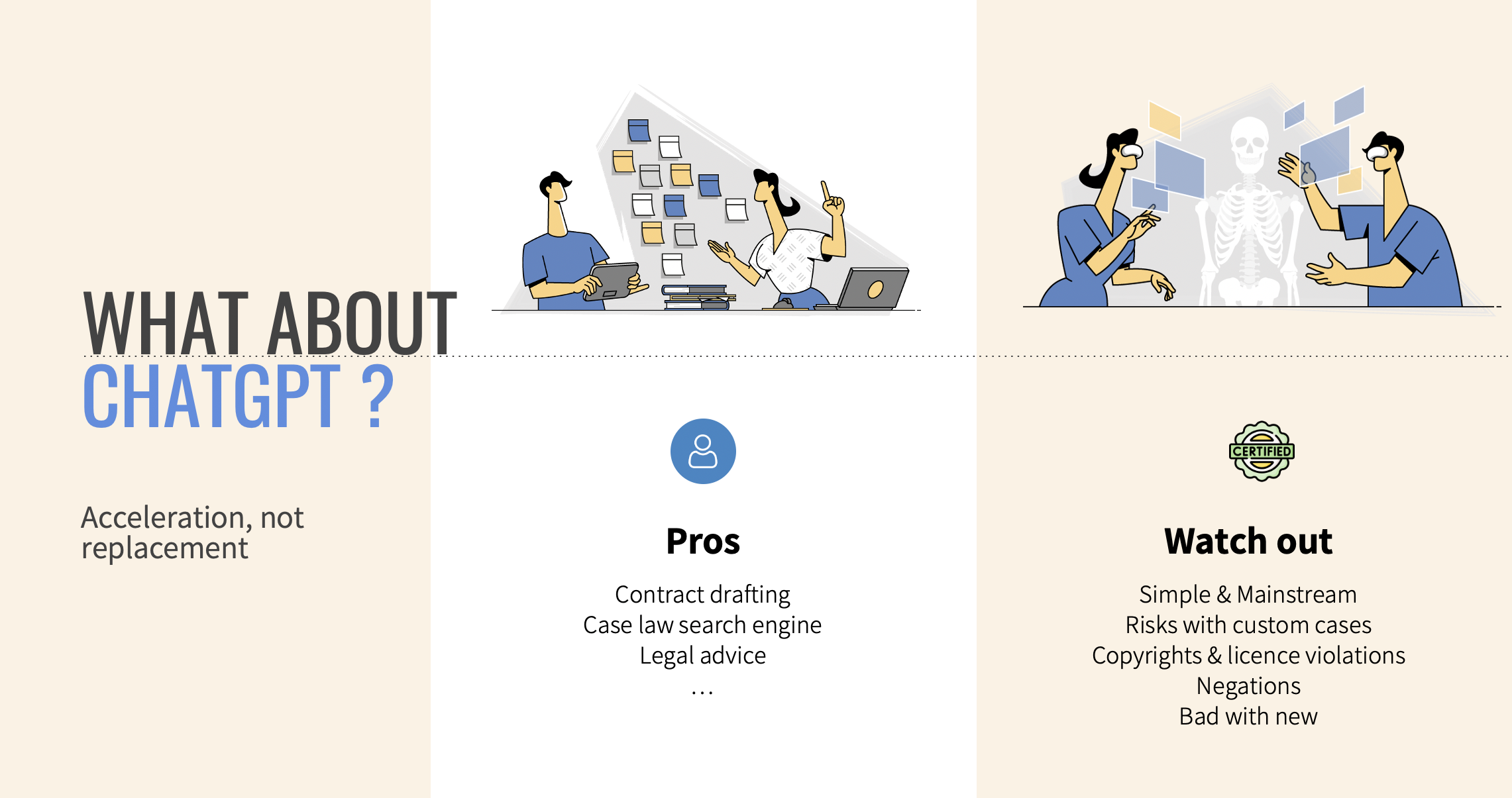
The use of AI applications in the legal industry is fraught with problems related to expense, security, and trust. This intensifies some worries about ChatGPT’s complex framework in terms of how it is used.
Using ChatGPT in legal departments requires hardware to manage the large amount of data needed to produce results comparable to AI models. It can be overwhelming for legitimate businesses and creates issues with security and ethics. Additionally, ChatGPT is not a helpful tool in circumstances requiring in-depth legal study and investigation because it lacks the judgment and comprehension needed to interpret legal precedents and principles like a human lawyer.
Were you already aware of these solutions? Have you already applied some of them in your daily activities? Share your thoughts with us on LinkedIn!